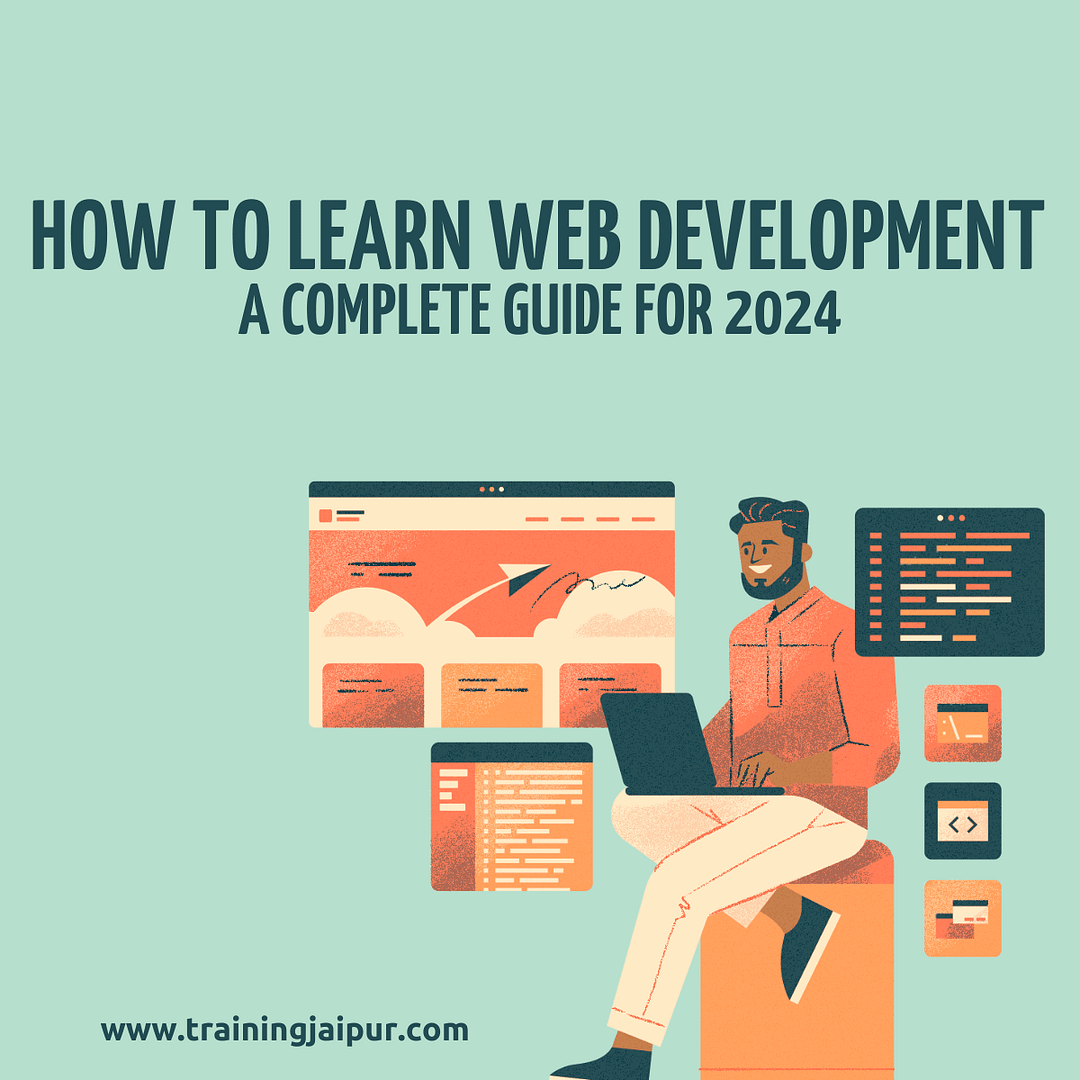
If you love technology, you might have heard about web development or full-stack web development. It’s a growing field with lots of high-paying job opportunities.
Companies need skilled web developers to keep their websites running smoothly and to give users a great experience. They’re willing to pay top dollar for the best developers who can help their businesses succeed.
The good news is, learning web development isn’t as hard as it seems. You just need to spend a few months learning about different parts of web development, like libraries, programming languages, frameworks, and databases. Having a clear plan can make the learning process much easier.
In this blog, we’ve put together a complete guide to learning web development for beginners. It covers all the basics you need to know to start a career in web development.
What Is Web Development?
eb development involves creating, designing, testing, and maintaining websites and web applications. This process includes designing the website’s look, writing code, creating content, and making sure the website works well.
Web development includes both frontend and backend development. Frontend development focuses on what users see and interact with on a website, like the layout, images, text, and buttons. Backend development deals with the server side, including server setup, databases, and making sure everything works smoothly behind the scenes.
Web developers use programming languages like HTML, CSS, and JavaScript to build websites.
1. Understand the Basics
Start with the basics of web development. You need to know three main languages:
- HTML: This is the foundation of any website. It structures the content.
- CSS: This styles the content. It makes websites look good with colors, fonts, and layouts.
- JavaScript: This adds interactivity. It makes websites dynamic and responsive.
2. Learn Frontend Development
Frontend development is all about what users see and interact with on a website.
- HTML/CSS: Get comfortable with creating and styling web pages.
- JavaScript: Learn to make your web pages interactive.
- Responsive Design: Make sure your websites work well on all devices (desktops, tablets, and smartphones).
- Frameworks/Libraries: Learn popular tools like React, Angular, or Vue.js to build complex interfaces more easily.
3. Learn Backend Development
Backend development is about what happens behind the scenes. It makes sure everything works smoothly.
- Server-Side Languages: Learn languages like Python (with Django or Flask), JavaScript (with Node.js), Ruby (with Rails), or PHP.
- Databases: Understand how to store and manage data with SQL (like MySQL or PostgreSQL) and NoSQL (like MongoDB) databases.
- APIs: Learn to create and use APIs to connect the frontend with the backend.
4. Full-Stack Development
Full-stack developers can handle both frontend and backend development. This makes you very valuable to employers.
- Combine Skills: Use your knowledge of frontend and backend to build complete web applications.
- Frameworks: Learn full-stack frameworks like MERN (MongoDB, Express.js, React, Node.js) or MEAN (MongoDB, Express.js, Angular, Node.js).
5. Practice and Build Projects
The best way to learn web development is by doing. Build your own projects to practice your skills.
- Personal Projects: Create websites or web apps that interest you.
- Contribute to Open Source: Join open-source projects to learn from others and gain experience.
- Portfolio: Build a portfolio of your work to show potential employers.
6. Stay Updated
Web development is always evolving. Stay up-to-date with the latest trends and technologies.
- Follow Blogs and News: Read web development blogs and news sites.
- Join Communities: Participate in forums, attend meetups, and join online communities.
- Take Courses: Enroll in online courses to learn new skills and stay current.
7. Get a Job
Once you’ve built your skills and portfolio, start looking for web development jobs.
- Job Boards: Look for job postings on sites like LinkedIn, Indeed, and Glassdoor.
- Networking: Connect with other developers and attend industry events to find job opportunities.
- Freelancing: Consider freelancing to gain experience and build your portfolio.
Conclusion
Web development is a fantastic career path with lots of opportunities. With hard work and practice, anyone can succeed in this field. If you’re just starting out, focus on learning the basics, choosing what you want to specialize in, and practicing regularly. It’s also important to keep up with the latest trends and learn about tools like frameworks, libraries, and programming languages.
At Training Jaipur, we offer web development courses in Jaipur to help you learn the skills you need to succeed in this industry. With our guidance, you can pave your way to a dream career in web development. Start your journey with us today and unlock your potential in this exciting field!
